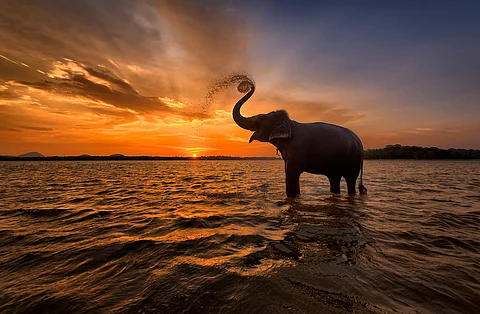
- Destinations
- Experiences
- Stay
- What's new
- Editor’s Picks
- Responsible Tourism
- CampaignsCampaigns
- Subscribe

Sri Lanka, often referred to as the "Pearl of the Indian Ocean," is a stunning island nation located in South Asia. With its rich cultural heritage, diverse landscapes, and warm hospitality, it has become an increasingly popular destination for travellers worldwide. If you're planning a trip to Sri Lanka, several key aspects must be considered to ensure a smooth and memorable journey. Here's a look at everything you need to know before embarking on your Sri Lankan adventure.
When planning a trip to Sri Lanka, it's important to keep in mind that the country has a tropical climate. This means that it can be pretty hot and humid throughout the year. The monsoon season typically runs from May to September on the west coast and from October to February on the east coast. To ensure you're comfortable during your trip, pack light and breathable clothing, sunscreen, and stay hydrated by drinking plenty of water.
Sri Lanka's mountainous regions can reach elevations of over 2000m (6560ft), which means that temperatures in these areas can be lower than on the coast. If you're planning to visit the highlands, it's a good idea to pack a light jumper for cooler nights and early morning starts, especially between December and March. Additionally, bringing a sarong can be very useful on your trip. You can use it as a beach blanket or towel, a shawl or skirt to cover your shoulders or knees when visiting temples, and even a warm layer when travelling on air-conditioned buses or for pre-dawn safari jeep drives.
Sri Lankan cuisine is known for its rich flavours and unique blend of Indian, Chinese, and European influences. Some of the most popular dishes include rice and curry, hoppers, and string hoppers. And don't forget to try the local tea, which is world-renowned for its quality and taste. With so many delicious options to choose from, your taste buds are sure to be in for a treat during your trip to Sri Lanka.
When visiting temples, it's important to dress modestly and remove your shoes before entering. Additionally, it's considered impolite to touch someone's head or point with your feet. It is important to note that Sri Lankan Buddhists hold depictions of the Buddha in high regard, and they should always be treated with respect. There have been instances where individuals have been deported from Sri Lanka for displaying what is deemed "disrespecting" Buddha images.
Therefore, it is advisable to avoid wearing clothing with Buddha images, and if you have tattoos of Buddhist iconography, it is best to keep these covered. It is also important to note that posing for selfies with a Buddha statue is considered disrespectful, as is turning your back towards a Buddha image.
Sri Lanka Railways is responsible for operating the nation's trains, including the renowned Main Line that runs east from Colombo, cutting through the high mountains, tea estates, and forests. This train journey is breathtakingly beautiful and is a favourite among both tourists and locals, especially the stretch between Kandy and Ella.
To secure a seat, it's advisable to book tickets for the air-conditioned first-class or fan-cooled second-class well in advance, either in person at the stations or online via booking sites. It's worth noting that tickets are released ten days prior and tend to sell out quickly.
Sri Lanka is generally considered a safe country for travelers, but taking precautions is always essential. Petty theft can be a problem, particularly in crowded areas, so keeping your valuables safe is a good idea. Additionally, being aware of your surroundings is essential, especially at night. By taking these precautions, you can help ensure your trip to Sri Lanka is safe and enjoyable.
The most preferrable way to reach Sri Lanka is to travel by air. You can board a flight from your nearest airport to the Bandaranaike International airport in Colombo.
Indian nationals planning to visit Sri Lanka for tourism or business purposes generally require an Electronic Travel Authorization (ETA) for entry. The ETA allows a stay of up to 30 days and can be obtained online through the official Sri Lankan ETA website or authorised travel agents. It's essential to ensure your passport has at least six months of validity and to possess proof of a return or onward ticket. Adequate funds to cover your stay are advisable, and if travelling from a yellow fever-prone area, a vaccination certificate may be necessary. Visa policies can change, so checking with official sources is crucial.
